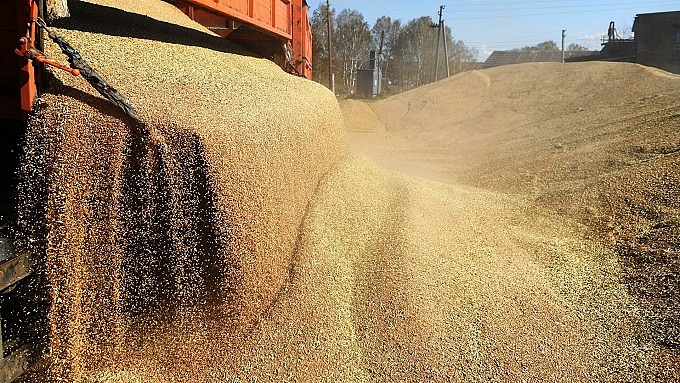
The Food Contract Corporation will not ship new Kazakh wheat for export. It will supply the entire volume of its reserves to the domestic market to ensure price stability and support poultry and livestock breeders.
In total, within the framework of returns under forward contracts, the Food Corporation plans to receive 738 thousand tons of wheat from the peasants of Kazakhstan. In addition, the Government allocated funds for the purchase of 200,000 tons of food grain on the commercial market.
Thus, the total amount of resources will exceed 938 thousand tons. In addition, there is an untouchable food reserve in the amount of 500 thousand tons, which is stored in case of any natural disasters and can be unpacked only by special decision of the authorities.
The Government of the Republic of Kazakhstan will be able to replenish the resources of the Food Corporation by another 600 thousand tons if it accepts the proposal of the Grain Union of Kazakhstan. It consists in not introducing any restrictions on the export of grain in exchange for the obligatory delivery by the trader at fixed prices to the country's resources of 10% of the batch shipped abroad. The government is now studying the situation on the market in order to make a final decision.
- We estimate the wheat harvest of this season at 10.5 million tons, - Yevgeny Karabanov, official representative-expert of the Grain Union of Kazakhstan, told ElDala.kz. - Yes, it is significantly lower than in 2020, when we collected 13.6 million tons. But, nevertheless, there is enough wheat to satisfy all domestic needs of Kazakhstan, and to fulfill export contracts. There is only one question - to contain the rise in prices for bread within the country in the global trend of rising prices for agricultural products. And the proposed mechanism completely solves this problem. We estimate the export potential of Kazakhstan for wheat and flour in grain equivalent at 6.1 million tons. Thus, by selling 10% of this volume to the Food Corporation, we will replenish its reserves by 610,000 tons. And its total reserves will amount to more than 1.5 million tons. This is quite enough to provide our bakers, pasta producers and poultry farmers with cheaper grain.
Grain exporters note that interference in market mechanisms through bans and restrictions will ultimately hit the entire agricultural sector. And they remind of the previously voiced position of the President of the Republic of Kazakhstan, Kassym-Jomart Tokayev, who noted that the introduction of an export duty is a premature and unnecessary measure.
- The situation on the grain market is now stable, and there is no point in bringing down the market, tearing trade relations that have been established over the years, introducing restrictions, - Yevgeny Karabanov noted. - Yes, targeted measures are needed, and we propose them. And imposing an export duty is like giving a neurosurgeon a chainsaw and offering to perform an operation. You need to act subtly so as not to upset the balance. And the introduction of an export duty will bring down prices both for exports and in the domestic market, primarily hitting farmers. And here it is necessary to understand well that if today we do not allow the peasants to compensate for the losses associated with the low yield of the dry season due to high prices, then in two years we will have empty store shelves - many producers will simply go bankrupt.
The Grain Union of Kazakhstan proposes to sell 10% of the grain from the export lot to the resources of the Food Corporation at the previously set price of 105 thousand tenge/ton, while the commercial price on the market now is 120 thousand tenge/ton. Thus, from each ton, the loss of the exporter will be 1.5 thousand tenge. However, they are ready to bear this social burden in order to preserve the prospects of the industry.
Additionally, the Grain Union of Kazakhstan notes that the introduction of an export duty will force buyers from Uzbekistan and Tajikistan to switch to buying Russian wheat, since it will be more affordable for them. And Kazakhstan, due to clumsy measures, will simply lose one of its few sales markets.